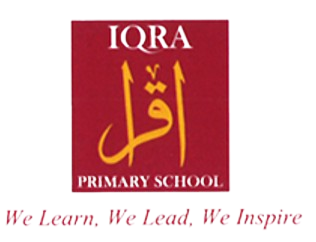Phonics
![]()
At Iqra Primary School we use Read Write Inc Phonics (RWI) to give your child the best possible start with their literacy. We have put together a guide to how the RWI programme works together with some useful links.
Reading will give your child the tools to become independent life-long learners.
We can achieve this together through:
- Read Write Inc, a program to help to your child read at school
- Encouraging children to develop a love of books by reading to them daily, at home and at school
- Giving children access to a wide range of books at school and at home
What is Read Write Inc?
Read Write Inc (RWI) is a phonics complete literacy programme which helps all children learn to read fluently and at speed so they can focus on developing their skills in comprehension, vocabulary and spelling. The programme is designed for children aged 4-7. However, at Iqra we will continue teaching RWI to children beyond the age of 7 as we use a stage not age approach.
RWI was developed by Ruth Miskin and more information on this can be found at https://ruthmiskin.com/en/find-out-more/parents/.
How will RWI be taught?
All children are assessed regularly by our RWI trained teachers. From these assessments’ children are grouped into stages, where they work with peers on the same stage.
Reception
In Reception all children will learn how to ‘read’ the sounds in words and how those sounds can be written down.
Reading
The children:
- Learn 44 sounds and the corresponding letters/letter groups using simple picture prompts – see below
- Learn to read words using Fred talk and sound blending
- Read from a range of storybooks and non-fictions books matched to their phonic knowledge
- Work well with partners
- Develop comprehension skills in stories by answering ‘Find It’ and ‘Prove It’ discussion questions
Writing
The children:
- Learn to write and form the letters/letter groups which represent the 44 sounds with the help of fun phrases
- Learn to write words by using Fred Talk
- Learn to build sentences by practising sentences out loud before they write
Talking
The children work in pairs so that they:
- Answer every question
- Practise every activity with their partner
- Take turns in talking and reading to each other
- Develop ambitious vocabulary
Progressing through the stages
Children in Early Years will work on sounds and read books appropriate to their reading level. Daily sessions of RWI phonics last 30 minutes. Once children become fluent speedy readers they will move on to the RWI Spelling programme.
Five key principles underpin the teaching in all Read Write Inc. sessions:
Purpose – know the purpose of every activity and share it with the children, so they know the one thing they should be thinking about
Participation – ensure every child participates throughout the lesson. Partnership work is fundamental to learning
Praise – ensure children are praised for effort and learning, not ability
Pace – teach at an effective pace and devote every moment to teaching and learning
Passion – be passionate about teaching so children can be engaged emotionally.
Children will be taught how to read as follows:
Before you start to teach your child, practice saying the sounds below. These are the sounds we use to speak in English.
Fred Talk

We use pure sounds (‘m’ not’ muh’,’s’ not ‘suh’, etc.) so that your child will be able to blend the sounds into words more easily.
At school we use a puppet called Fred who is an expert on sounding out words! we call it, ‘Fred Talk’. E.g. m-o-p, c-a-t, m-a-n, sh-o-p, b-l-a-ck
The following video is an example of blending sounds with Fred. https://www.youtube.com/watch?v=dEzfpod5w_Q
The children are taught the sounds in 3 sets.
Step 1:
Set 1 Sounds are taught in the following order together with rhymes to help children form the letters correctly and instantly recognise sounds ready for blending. Children in Reception will start on set 1 sounds.
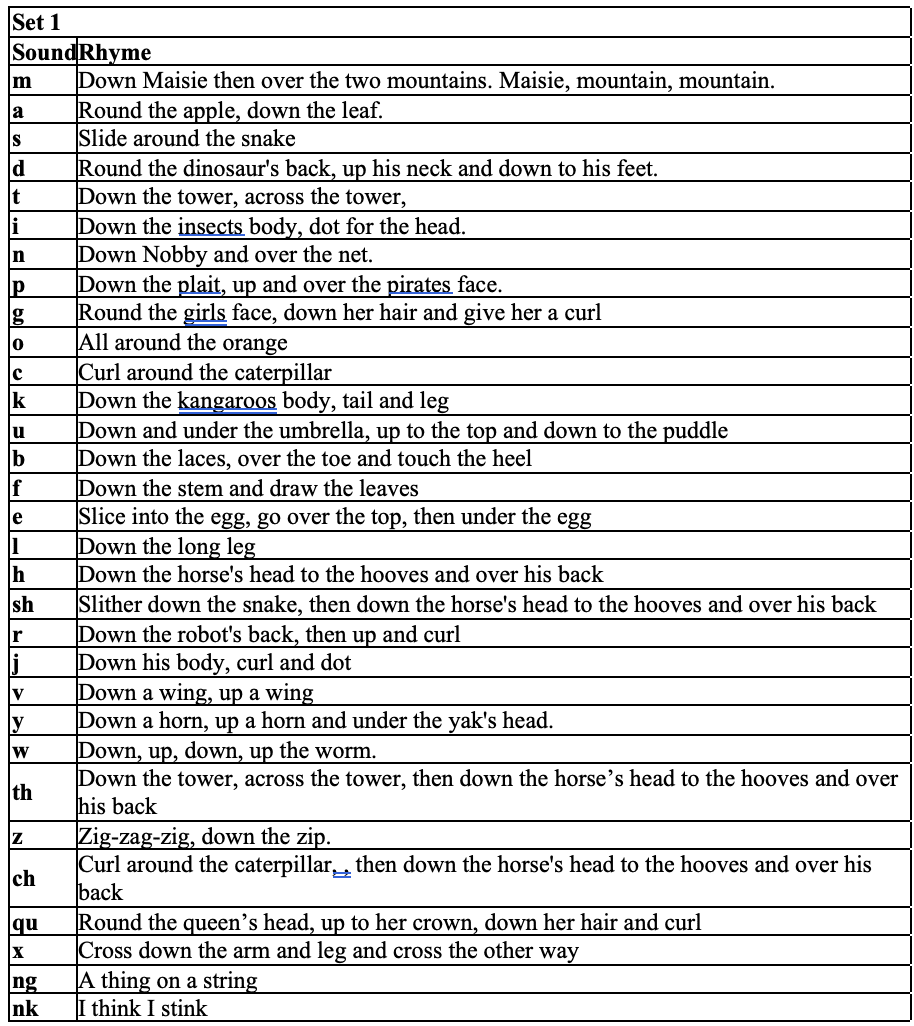
Use the link below to support your pronunciation sounds correctly.At this stage we do not use the letter names
https://www.ruthmiskin.com/en/find-out-more/parents/#lg=1&slide=3
Children initially begin using pictures for each sound, this will help children recognise the sound and then form the shape of the sound.
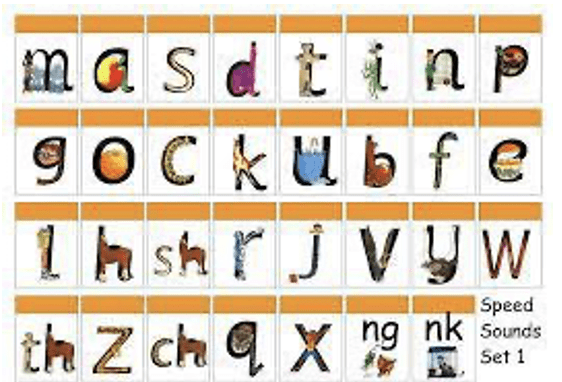
Step 2:
The children are then taught Set 2 Sounds – the long vowels. Set 2 sounds are taught in Reception and the beginning of Year One. When children are very confident with all of set 1 and 2 they are taught Set 3 Sounds. Set 3 sounds are taught in Year One
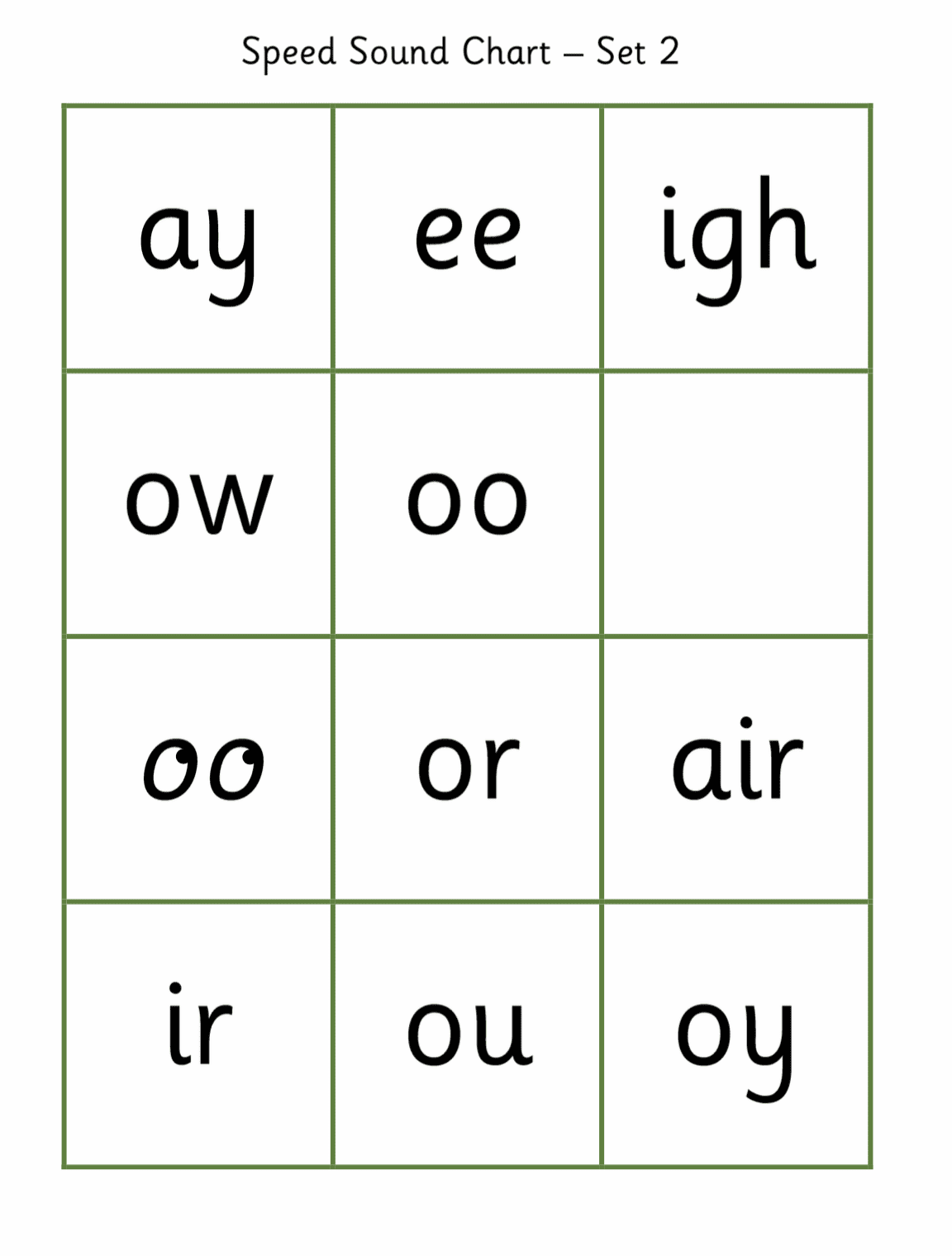
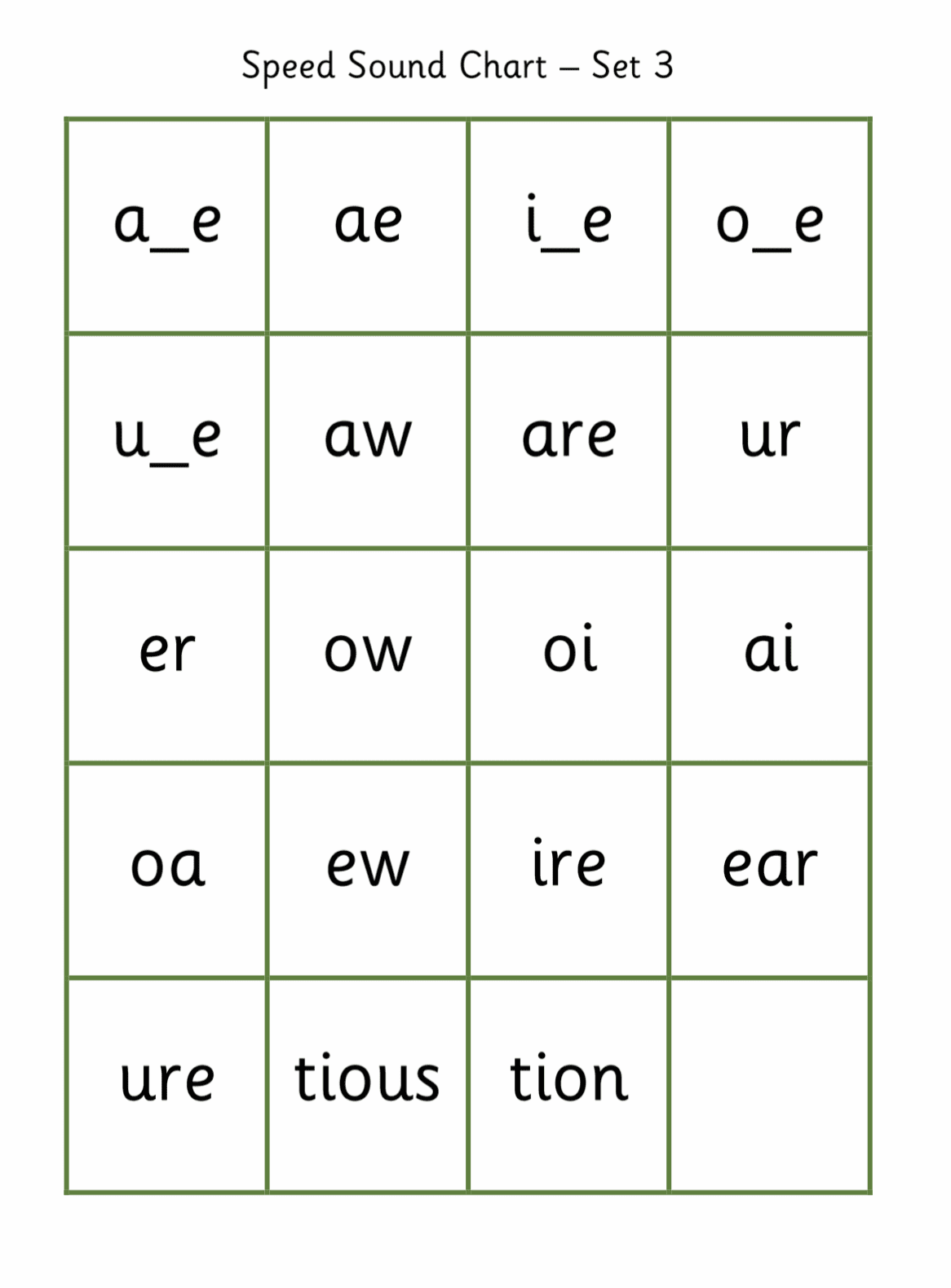
Nonsense words (Alien words)- What ‘a load’ or nonsense!
As well as learning to read and blend real words children will have plenty of opportunities to apply their sound recognition skills on reading ‘Nonsense words’. These words will also feature heavily in the Year One Phonics Screening check in the summer term. These words provide endless opportunities for children to apply and practice their thinking in a range of different contexts.
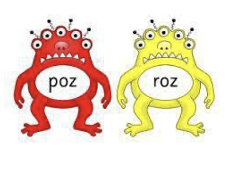
Step 3:
Within all the RWI sessions/books children will be exposed to red and green words to learn to help them to become speedy readers. Red words are words that are not easily decodable and challenge words to extend children’s vocabulary. Green words are linked to the sounds they have been learning and are easily decodable.
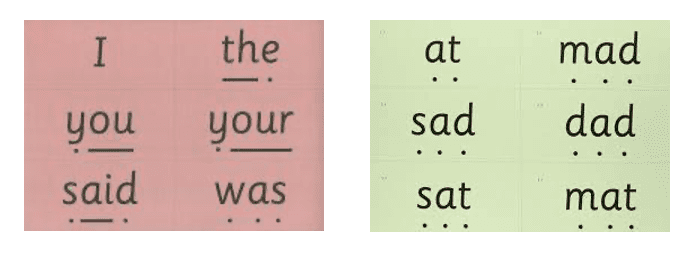
Dots and dashes represent the sound each letter makes.
During the RWI session children will read the book three times and at each new reading they will have plenty of opportunities to practise using their developing comprehension skills. You may have heard your child talking about ‘hold or proof read a sentence’.
Hold a sentence is an activity that encourages children to remember a whole sentence while focusing on spelling and punctuation.
Proof read a sentence is an activity that encourages children to spot mistakes in a sentence and work with a partner to correct the errors.
Spelling
Each day the children are supported to develop their spelling skills (This will only start in Reception when children are ready to write and form their letters). Children will use first use ‘Fred fingers’ to first sound out a word before they write it down. Children learn how to spell rather than just get tested. Furthermore, this way of teaching spellings allows children to use Fred fingers whenever they get stuck with spelling a word. Children pinch each sound on fingers before writing the word.
To help at home:
Your child will start to bring books home relating to their reading stage. You will find they will bring home a phonics-based book, this will aid application, speed and fluency- developing speedy reading! Following on from this, they will bring a comprehension-based book which will begin to enrich their reading, which will require decoding skills. Only then, children will bring home enriched reading books which will enhance their understanding via inspirational language promoting depth to their understanding.
Useful websites for Parents
Please find a list of websites that you may find useful in helping you and your child learn about phonics. Games and fun activity websites are also included.
https://www.ruthmiskin.com/en/find-out-more/parents/ – Information and resources to support phonics learning at home
http://www.bbc.co.uk/bitesize/ks1/literacy/phonics/play/ – fun games for the children to play
http://www.ictgames.com/literacy.html – fun games for the children to play
http://www.firstschoolyears.com/ – fun games for the children to play
BBC Bitesize – many games to play covering all areas of the curriculum
RWI Information booklet for parents Read, Write Inc policy
Phonics Screening at Year 1 and year 2
year 1 phonics screening powerpoint for parents
Previous Phonics Screening Checks
2016 phonics screening check pupils materials 2017 phonics screening check pupils materials 2018 phonics screening check pupils materials
Resources for Phonics Screening
phonemes graphemes list Read, Write Inc Glossary snakes and ladders phonics revision Join in with Iqra Phonics
